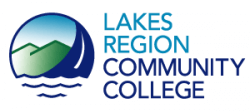Title IX states that:
No person in the United States shall, on the basis of sex, be excluded from participation in, be denied the benefits of, or be subjected to discrimination under any education program or activity receiving Federal financial assistance.
Policy Statement
CCSNH and its Colleges, including Lakes Region Community College, are committed to creating and maintaining a positive and productive learning environment. In furtherance of this objective, CCSNH prohibits discrimination in the administration of its education programs and activities based on sex including conduct that constitutes sexual harassment. CCSNH also prohibits retaliation against anyone who is involved in the making or reporting of a complaint or investigation or hearing of a formal complaint of sexual harassment.
Scope of Policy and Jurisdiction
This policy applies to and protects any person participating in or attempting to participate in the education program or activity of any CCSNH college. This policy applies to all college programs and activities including all locations within the United States, events, or circumstances over which the college exercises substantial control over both, the respondent and the context in which the sexual harassment occurs, whether such programs or activities occur on-campus or off-campus. CCSNH Human Resources Policy 323.01 also prohibits sexual harassment and retaliation and will govern investigations of reports where an employee is the complainant and/or respondent.
Please find the full policy here.
Inquiries regarding Title IX may be directed to:
Adriana Komst
Business Affairs Officer and Title IX Coordinator
Lakes Region Community College
379 Belmont Road
Laconia NH, 03246
akomst@ccsnh.edu
603-366-5206
Inquiries may also be directed to:
Office for Civil Rights,
Boston Office
US Department of Education,
8th Floor
5 Post Office Square
Boston, MA 02109-3921
[email protected]
617-289-0111
TTY 1-800-877-8339
FAX 617-289-0150
Definitions
Definitions for Formal Grievance Procedures
Sexual Harassment: Includes any of the three types of misconduct on the basis of sex, all of which jeopardize the equal access to education that Title IX is designed to protect:
- Any instance of quid pro quo harassment by an employee of CCSNH
- Any unwelcome conduct that a reasonable person would find so severe, pervasive, and objectively offensive that it denies a person equal educational access
- Any instance of sexual violence, which includes sexual assault (as defined in the Clery Act), domestic violence, dating violence, or stalking as defined in the Violence Against Women Act (VAWA)
Definitions Document
Title IX Coordinator
When a report of sexual violence is received by the Title IX Coordinator, the reporting party will be given written information about college processes, supportive measures and support services and will also be informed of the right to file a formal complaint with the Title IX Coordinator and/or a criminal complaint with the police.
All LRCC employees with supervisory or management responsibilities, and individuals designated as Campus Security Authorities under the Clery Act (including RAs and advisors), who receive information about possible sexual misconduct/harassment of students are required to make a report.
Reports to the Title IX coordinator may be made in person or by calling:
Adriana Komst
Business Affairs Officer and Title IX Coordinator
Lakes Region Community College
379 Belmont Road
Laconia NH, 03246
[email protected]
603-366-5206
Anonymous Reports
Anonymous/online reporting is also available at LRCC; however, this may limit the college’s ability to investigate and address the report. Online reporting is available through the LRCC Campus Safety webpage.
Criminal Complaint
Sexual misconduct that may be criminal in nature can be reported to local law enforcement. If an individual reports sexual misconduct at their college, the college will inform the individual about the option to pursue criminal action for incidents of sexual misconduct that may also be crimes under New Hampshire law. If requested, LRCC will assist the individual in making a criminal report and cooperate with law enforcement agencies to the extent permitted by law.
Reports to police that occur on or near the college campus may be made to:
State of New Hampshire Police Headquarters
33 Hazen Drive
Concord, NH 03301
603-271-3636 or 603-273-4381
After a report of sexual misconduct/ sexual harassment, is made, the Title IX Coordinator will meet with the complainant (alleged victim), if they are identified in the report, to discuss and implement any needed supportive measures. Such measures will remain confidential to the extent possible in the particular circumstances.
Supportive measures are individualized services offered to a complainant following a report of sexual misconduct/sexual harassment. Supportive measures may also be provided as appropriate to respondents after a formal complaint is filed. Supportive measures are designed to facilitate a party’s ability to access education programs and activities, without overly burdening the other party (prior to a finding of responsibility). Examples of supportive measures include, but are not limited to no contact orders, referrals for services, changes in schedules, etc.
The Title IX coordinator will explain the process that apply to the allegations raised, including the process for filing a formal Title IX complaint if the conduct may constitute sexual harassment under Title IX.
No investigation will occur unless a formal complaint is filed with the Title IX Coordinator by the complainant, or the Title IX Coordinator decides to file a formal complaint. The formal complaint must be in writing and include the following:
- Basic information about the possible violation(s) of sexual harassment (such as date, time, location, type of incident, name(s) of individuals involved).
- A request that CCSNH/College investigate the allegation(s).
The Title IX Coordinator may determine that specific circumstances warrant pursuing a formal complaint (such as when the alleged respondent has previously been found responsible for serious sexual misconduct or there may be a safety threat to the CCSNH/College community), even when the complainant does not file a formal complaint. In such cases, the complainant will receive advance notice as well as notices of activities at various points in the procedure, but is not a party to the case. Likewise, the Title IX Coordinator is not a party, for purposes of this procedure, if they file a formal complaint on behalf of CCSNH/College.
The Title IX Coordinator may consolidate formal complaints where circumstances warrant.
LRCC shall conduct a live hearing through which a decision maker will consider the evidence, make determinations of responsibility, and impose remedies including, if warranted, disciplinary sanctions.
The Title IX coordinator shall be responsible for scheduling the live hearing (no less than ten calendar days after receiving the written responses to the investigative report) and notifying persons who need to be present at the hearing. Witnesses will be requested to provide testimony at the hearing. Some important features of hearings include the following:
- Under Title IX, CCSNH/college has no authority to compel parties, witnesses or advisors to be present for a hearing.
- At the request of a party, the parties will be in separate rooms with technology to allow the parties and decision maker to see and hear parties/witnesses answering questions.
- The decision maker, not the investigator, makes the final determination of responsibility and impose remedies, including disciplinary sanctions where warranted. The decision maker will not be the Title IX Coordinator or the investigator.
- The decision maker may impose reasonable time limits on opening/closing statements, cross-examination, and comments by the parties and their advisors during the hearing, and shall generally preside over the hearing and enforce the rules of decorum.
- The decision maker may ask questions of the parties, their advisors and any witnesses.
- The decision maker shall rule on the relevance of evidence offered or of any question asked of a party or witness prior to the question being answered, especially during cross-examination.
- The decision maker may request input from CCSNH/college officials concerning possible sanctions, either during the live hearing or during the period between the close of the hearing and the issuance of the decision maker’s written determination.
- CCSNH counsel may attend the hearing and may provide advice to the decision maker or guidance to the participants during the hearing as needed.
- Parties must have an advisor at the hearing. If a party does not have an advisor at this stage of the process, CCSNH/college will appoint one for the party at no cost to the party.
- The Title IX regulations require that advisors (and not the parties) may question parties and witnesses, following rules of decorum.
- A video or audio recording or transcript shall be made of the hearing, and made available to the parties for inspection and review.
Standard of Proof
LRCC uses a preponderance of the evidence standard (“more likely than not”) in making determinations of responsibility.
Determination of Responsibility
The decision maker shall issue a written determination, which shall include the following:
- Identification of all the allegations potentially constituting sexual harassment as defined in the Title IX regulations and this policy.
- A description of the procedural steps taken from receipt of the formal complaint through the determination, including notifications to the parties, interviews with parties and witnesses, site visits, methods used to gather other evidence, and hearings held.
- Findings of fact supporting the determination.
- A statement of, and rationale for, the result as to each allegation, including a determination regarding responsibility, and any disciplinary sanctions CCSNH/college imposes on the respondent.
- A statement as to whether remedies designed to restore or preserve equal access to CCSNH/college education programs and activities will be provided to the complainant; however, the decision maker shall not identify such remedies. The Title IX coordinator shall work with the complainant to design remedies consistent with the decision maker’s findings.
- The procedure and permissible bases for the complainant and respondent to appeal the determination (or dismissal).
The written determination shall be provided to the parties simultaneously. The determination concerning responsibility becomes final either on the date that CCSNH/college provides the parties with the written determination of the results of the appeal, if an appeal is filed (see subsection 9 below), or if an appeal is not filed, the date on which the appeal period expires. A complaint filed with an external agency is not an appeal for purposes of determining when a finding of responsibility becomes final.
Sanctions
Upon determining that a student respondent committed the alleged conduct and thereby violated this policy, the decision maker may impose one or more of the following sanctions:
- WARNING – a notice in writing to the student that the student is violating or has violated institutional policy
- PROBATION – a written reprimand for violation of specified policies. Probation is for a designated period of time and includes the probability of more severe disciplinary sanctions if the student is found during the period of probation to be violating any institutional regulations
- LOSS OF PRIVILEGES – denial of specified privileges for a designated period of time (e.g., social probation, vehicular privileges, deactivation of a group, limited access to facilities, persona non grata designation)
- NO CONTACT – restriction prohibiting an individual from approaching or contacting a specified individual
- FINES – previously established and published fines may be imposed;
- RESTITUTION – compensation for loss, damage, or injury. This may take the form of appropriate service and/or monetary or material replacement
- RESIDENCE HALL/CAMPUS HOUSING SUSPENSION – separation from the residence halls/campus housing for a definite period of time, with conditions for readmission (if appropriate)
- RESIDENCE HALL/CAMPUS HOUSING EXPULSION – permanent separation from the residence halls/campus housing
- CLASS/ COLLEGE SUSPENSION – separation from class(es) or the College for a definite period of time, with conditions for readmission (if appropriate)
- COLLEGE DISMISSAL/EXPULSION – permanent separation from all CCSNH colleges which may include loss of campus visitation privileges
- EDUCATIONAL OR SERVICE SANCTIONS – imposed in addition to or in lieu of the above sanctions; examples of such sanctions include but are not limited to: work assignments, service to the college, written letter of apology, and mandatory meetings with a college official. Such sanctions require the approval of any person(s) whose participation is required for the completion of the sanction(s).
Supportive Measures and Remedies
The Title IX coordinator may continue and/or adjust supportive measures for the complainant following the conclusion of the procedure, based on the complainant’s needs at that time.
“Remedies” are measures used to ensure that the complainant has equal access to the college’s education programs and activities following a decision maker’s determination. Such remedies may include supportive measures and depend upon the determination and the needs of the complainant. The Title IX coordinator is responsible for implementing remedies and providing any needed assistance to the complainant.
Appeals
Parties have the opportunity to appeal a determination regarding responsibility, and from dismissals of formal complaints. Appeals are allowed on the following grounds:
- Procedural errors that affected the outcome of the matter
- New evidence that was not reasonably available at the time the determination regarding responsibility or dismissal was made, that could affect the outcome of the matter
- The Title IX coordinator wrongfully concluded that the formal complaint did not constitute sexual harassment under this procedure and dismissed the formal complaint
- The Title IX coordinator, investigator or decision maker had a conflict of interest or bias for or against complainants or respondents generally, or the individual complainant or respondent, that affected the outcome of the matter
- A sanction imposed was improper in light of mitigating or extenuating circumstances not known at the time that a Party was provided an opportunity to comment on sanctions, if any, or was not properly considered by the decision maker.
An appeal must be filed in writing within 10 calendar days of receiving the determination, stating the grounds for the appeal and including any relevant documentation in support of the appeal. Unless granted an extension for good cause by the Title IX coordinator before the expiration of the appeal period, appeals submitted after this deadline are not timely and shall not be considered.
- Appeals must be filed by email with the Title IX coordinator, who shall refer it to the appropriate appeals officer.
- The Title IX coordinator shall provide a copy of the appeal to all other parties.
- The other parties shall have seven calendar days to submit a written statement addressing the appeal.
- The officer considering the appeal shall conduct an impartial review of the appeal, including consideration of the record of the matter, and may consult with other CCSNH/college officials and/or CCSNH counsel in making their decision.
- The appeals officer shall issue a written decision describing the result of the appeal and rationale for the result, and provide it simultaneously to the parties. The officer may: 1) deny the appeal; 2) grant the appeal and send back the matter to the decision maker for further consideration; 3) grant the appeal and send back the matter for a new live hearing before a new decision maker; 4) grant the appeal by revising the sanction; or 5) grant the appeal of a dismissal of a formal complaint and order that an investigation be conducted.
Victims of sexual misconduct/sexual harassment may pursue assistance and/or support confidentially by contacting a New Hampshire Domestic and Sexual Violence Crisis Center.
Crisis Center of Central New Hampshire
603-225-7376 Non-Emergency Contact
1-866-841-6229 Emergency Contact
[email protected]
https://cccnh.org/
Confidential support services are available to anyone who has been impacted by sexual misconduct, sexual harassment, domestic violence, dating violence or stalking. Services are open and affirming to all, and an individual need not be in crisis to call.
Immediate, confidential help is also available by calling:
- New Hampshire 24-hour Domestic Violence Helpline: 1-866-644-3574
- New Hampshire 24-hour Sexual Assault Hotline: 1-800-277-5570
- National 24-hour Sexual Assault Hotline: 1-800-656-4673
Conversations with crisis center and crisis line volunteers and advisors (who are also confidential resources) are protected under New Hampshire’s confidentiality statute (NH RSA 173-C).
Confidential resources can assist with information and referrals to medical and counseling resources and provide additional assistance as appropriate, such as referral to medical facilities where an individual may request that a medical forensic exam be administered by a trained sexual violence forensic health care provider, including information on transportation options and information on reimbursement of travel costs, if any.
The above-listed confidential resources can provide emotional support and information or referrals to on-campus and off-campus resources. They can also accompany a reporting party to meetings with the Title IX coordinator, investigation interviews, discipline meetings or hearings. Confidential resources are not employees of CCSNH.
Campus Safety Reports
Resources
When a report of sexual harassment is received, the Title IX Coordinator will provide information about supportive measures. Supportive measures are individualized services offered to a complainant following a report of sexual misconduct/sexual harassment. Supportive measures may also be provided as appropriate to respondents after a formal complaint is filed.
Supportive measures are actions taken by the college to restore or preserve equal access to education programs without unreasonably burdening any individual (prior to a finding of responsibility) or the college, including measures designed to protect the safety of all parties. Supportive measures may include, but are not limited to no contact orders, counseling, extensions of deadlines or other course-related adjustments, modifications of work (if working on campus) or class schedules, campus escort services, changes in work or housing locations, leaves of absence, increased security and monitoring of certain areas of campus, referrals for services, and other similar measures. Supportive measures may be implemented whether or not a formal complaint is filed.
The Title IX coordinator will determine whether supportive measures and accommodations are reasonable and should be implemented, and, if so, will work to ensure that these measures and accommodations are implemented as soon as possible. To seek supportive measures or accommodations, students should contact their College Title IX Coordinator.
If an outside agency or court of law has put in place an order of protection, the order should be provided to the College Title IX Coordinator so that the College may take appropriate measures consistent with the order.


